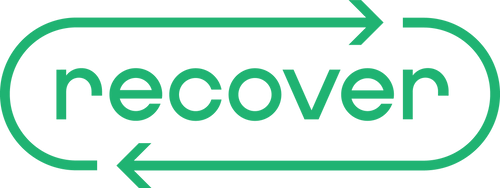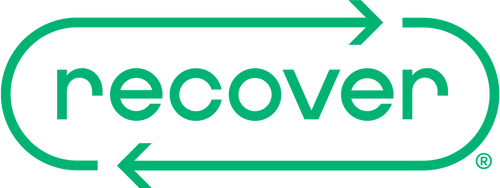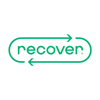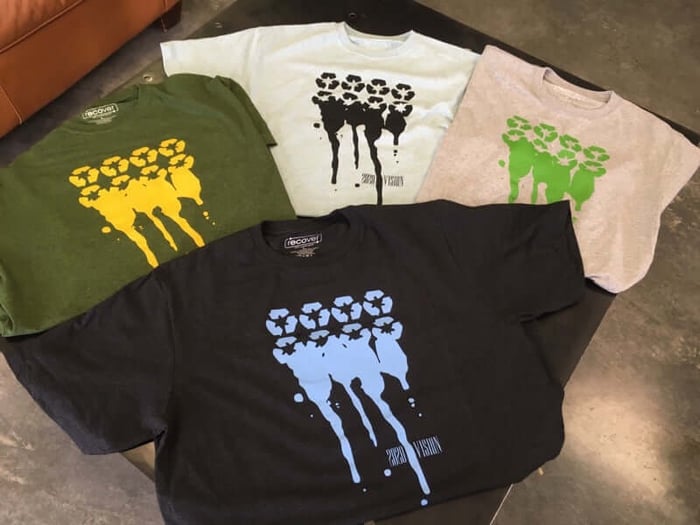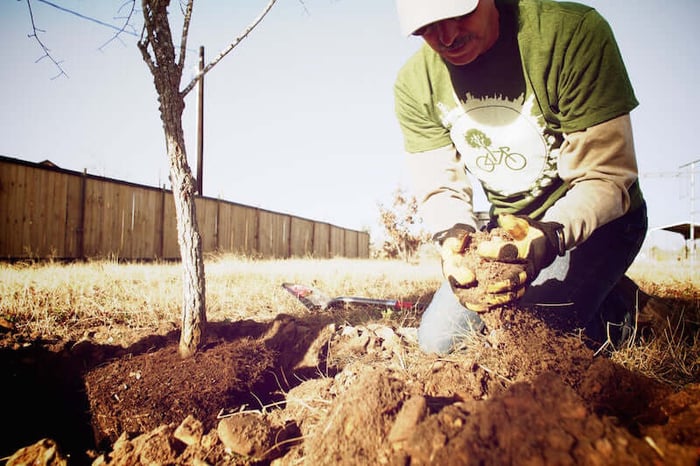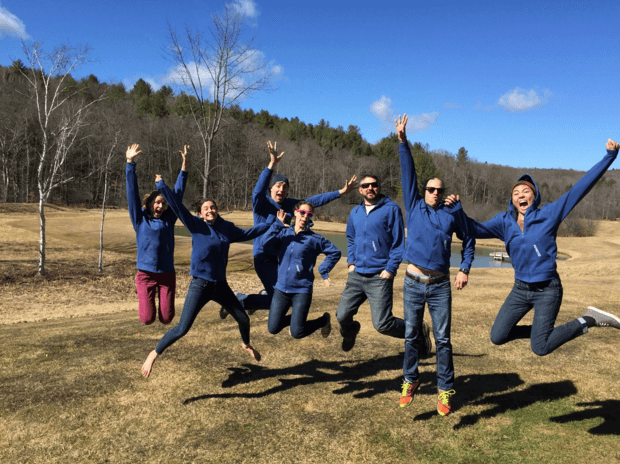
Since 1997, Jason Salfi and the team at Comet Skateboards have not only aspired to manufacture better skateboards, but to also improve the way they’re made. Drawing on his skating experience and his work in Natural Resource Management, Salfi set out to “build a business that conserves natural resources just by virtue of being.” He started by strategically placing his production operation in Ithaca, NY, close to the facilities that harvest the wood used to create the skate decks, allowing Comet to reduce the carbon footprint of their materials, and to collaborate closely with their suppliers to develop more sustainable methods. Salfi also emphasized using formaldehyde-free glues, as well as water-based inks and clear coats, completely removing the toxic elements from their process. Comet’s manufacturing methods have pushed the skateboard industry to become more sustainable overall.
They’ve also helped Comet build a premium product. The company’s skateboards are some of the most highly regarded in the business, thanks to their design diversity, durability, and aesthetic appeal. Comet makes long and short boards for a variety of uses; their custom eco-friendly presses produce “bomb proof” decks; and each one is still hand-screened, so they’re all unique, Comet says, “just like [their] riders.” Their newest model, the Upcycle, truly embodies Comet’s ethos. It’s a beautiful cruiser with a sturdy deck created entirely from the off-cut maple veneer scraps that usually wind up in the dumpster. Radical.
We caught up with Kaya Keys, Comet’s utility man and the artist behind their brilliant graphics, to find out more about the Upcycle and their innovative ways. Our co-founder, Bill Johnston, also joined the conversation. Read on to learn how each company approaches sustainability, and to hear why Recover’s partnership with Comet “was a no-brainer.”

Kaya, how did Comet get started? Have y’all always had sustainability in mind?
Kaya Keys: Comet started in 1997 for a few different reasons. At the time, the choices in the type of skateboards available was very limited. 99.9% of the boards available were one shape. These monoculture boards were made with various types of glues, and high VOC lacquer based paints. The industry had moved away from screen printing and was proliferating highly toxic heat transfers which require non recyclable PVC backer sheet for every graphic. This equates to millions of tons of toxic waste and chemicals.
Jason Salfi, the founder and principal owner, had a background is in Natural Resource Management. His goal in 1997, was to create a bill of materials based on sustainably harvested hardwoods, formaldehyde free glues, and zero VOC and non toxic inks, and paints. We started out as a manufacturer for other brands. Our initial value proposition was this environmentally minded skateboard that other companies could market as better. The fact was that no one cared about sustainability back then. It was all about price. We made boards that lasted longer (not necessarily an advantage for companies trying to sell lots of boards). Luckily we could offer them at a competitive price and got a good manufacturing business going. In 2002, right when we starting to scale up, boards from China hit the market at a price and quality good enough that it totally disrupted all of the manufacturers in North America.
Parallel to creating this awesome factory, we were making skateboards for all sorts of transition / pool skating, downhill skateboarding, speed boarding, cruising, surf style driveway slashing etc. We essentially had developed a line of oversized skateboards and while the world people who liked to have quivers was small, we loved what we were doing. Our passion internally was finding empty or abandoned swimming pools to skate and bombing hills in San Francisco, Marin, and the East Bay especially on full moons. We pivoted toward the Comet brand 100% at that point 2002, and the rest is history.
Bill, how did Recover decide to partner with Comet?
Bill Johnston: Partnering with Comet was a no-brainer as soon as we were introduced to them. It wasn’t a matter of if we were going to partner with them, but how are we going to partner with them. From the first conversation, I could tell that Comet was serious about sustainability. It wasn’t just a marketing ploy or an effort to sell more boards, they truly believe in sustainability and making a difference, and that’s what we look for in a partner. They also make extremely nice products and are very reputable in their industry (a sign of sustainable business).

Kaya, what does upcycling mean to Comet and how did the Upcycle board come about?
Kaya: We thought of the Upcycle board after seeing a 5000 cubic foot dumpster full of veneer offcut at PSSTIX (the world’s largest skateboard factory in Tijuana Mexico run by the legendary Paul Schmitt). The sheer amount of veneer lost in the skateboard manufacturing process at factories their size was eye opening. As manufacturers, We always purchased pre cut sheets and did not have as much visibility on the direct waste that we were all participating in.
Upcycle marks a moment in the Comet history, where we can productively partner with other manufacturers to make rad skateboards, and incentivize them to reduce their wasted wood. For every 11 skateboards made there is enough easily processed maple veneer to make another 1 Upcycle board. If we can start this trend, PSSTIX could use 3300 less trees and all of the energy that goes along with the processing of veneer per year.
Where / how are they manufactured?
Kaya: The first run of Upcycle boards is being manufactured by PSSTIX. The process is fairly easy. We are just splicing the veneer longitudinally and staggering it in the layup. The boards are stronger than normal boards because the grain is optimized.

Bill, what does upcycling mean to Recover and how does it fit into your game plan?
Bill: Upcycling, Recycling, Repurposing, Reusing, etc. They all can mean the same thing depending on who you are talking to and how you define it. In our eyes, upcycling encompasses everything we stand for and is the core of what we do. It’s about taking existing material and giving it new life. Long life. Our mission at Recover is to minimize our impact on the environment as much as we possibly can, and that starts with the materials that we use to make our products. We take existing materials that some people consider to be trash, and make new, premium products out of it. Ultimately, upcycling is the foundation of Recover and we incorporate it into everything we do.
What are the biggest challenges that Recover and Comet face in trying to operate a sustainable business?
Kaya: Sustainability is not the norm yet. We solve for externalities that other businesses simply do not account for. We, therefore, spend more money at times. That has cascading effects on the overall operation. For me that part of the process cannot matter as much. We are like astronauts and have to pioneer. The results of our efforts will someday be adopted for transforming our economy from extractive to regenerative. Beyond actually building brands that matter, that will make it worth it.
Bill: Like Kaya said, sustainability is not the norm YET, therefore we have to get creative with everything we do, which costs money and takes time. But, that’s the exciting part about it. We are creating something new and giving people opportunities to make sustainable choices.

What are some of the ways folks can apply sustainability and upcycling to their own lives?
Kaya: Well, Al Gore already let you know about better light bulbs and filling up your tires. Challenge yourself with a PSP – personal sustainability project. Pick something simple and have fun with it and build from there. Shop less for the things you need, you would be surprised how creative you are and how much fun it is to improvise. Buy more local food. Ask people not your phone – > Data uses energy and dissolves our happiness. Use more people power to get from place to place. Support companies that give back to communities and help steward our shared resources properly. Educate yourself. We will never succeed with austerity. We need to base our actions on abundance, transparency, and long term goals.
Bill: Echo, echo.. Kaya really hit the nail on the head with these answers. I guess that’s the like mindedness between Comet and Recover that I mentioned earlier. To reiterate, sustainability is about making personal choices on a daily basis. Individuals have a ton of control and influence and it really just boils down to practice. Have fun and make a game out of it. For instance have a contest with friends or with yourself and see how much waste you can divert from the landfill – reuse, recycle, compost – challenge yourself to not create waste!
